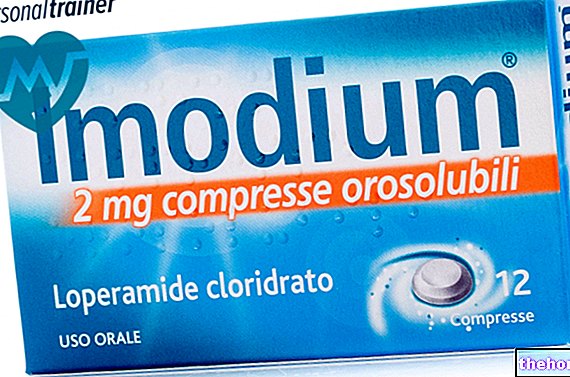Active ingredients: Ibuprofen (Ibuprofen arginine salt)
SPIDIFEN 400 mg Granules for oral solution apricot aroma
SPIDIFEN 600 mg Granules for oral solution apricot aroma
SPIDIFEN 600 mg Granules for oral solution mint-anise aroma
SPIDIFEN 400 mg Film-coated tablets
Why is Spidifen used? What is it for?
PHARMACOTHERAPEUTIC CATEGORY
Non-steroidal anti-rheumatic anti-inflammatory drugs.
THERAPEUTIC INDICATIONS
Pain treatment: headache, toothache, menstrual pain, neuralgia, osteoarticular and muscle pain, episiotomy and post-partum pain, pain from dental avulsions, post-operative pain, pain caused by small injuries or traumas.
Forms of inflammatory rheumatism: rheumatoid arthritis, ankylosing spondylitis, STILL's disease.
Forms of degenerative rheumatism: osteoarthritis (cervical, back, lumbar, gonarthrosis, coxarthrosis, polyarthrosis, etc.).
Extra-articular rheumatic forms: tendinitis, fibrositis, bursitis, myalgia, lumbago, scapulo-humeral periarthritis, sciatica, radiculo-neuritis.
Contraindications When Spidifen should not be used
- Hypersensitivity to the active substance or to other closely related substances from a chemical point of view and / or to any of the excipients.
- History of gastrointestinal bleeding or perforation related to previous active treatments or history of recurrent peptic ulcer / haemorrhage (two or more distinct episodes of proven ulceration or bleeding).
- Active and recurrent peptic ulcer.
- Gastrointestinal bleeding in progress.
- Ulcerative colitis and Crohn's disease.
- Severe hepatic and / or renal insufficiency.
- Severe heart failure.
- Due to the possibility of cross-allergic reactions with acetylsalicylic acid or with other non-steroidal anti-inflammatory drugs, the product is contraindicated in patients in whom these drugs induce allergic reactions such as asthma, urticaria, rhinitis, nasal polyposis, angioedema. In case of systemic lupus erythematosus and collagen diseases, the attending physician should be consulted before using SPIDIFEN.
- The granules, as they contain aspartame, are contraindicated in patients with phenylketonuria.
- Third trimester of pregnancy.
Precautions for use What you need to know before taking Spidifen
The use of SPIDIFEN should be avoided concomitantly with NSAIDs, including selective COX-2 inhibitors.
Undesirable effects can be minimized by using the lowest effective dose for the shortest possible duration of treatment needed to control symptoms.
Elderly: Elderly patients have an increased frequency of adverse reactions to NSAIDs, especially gastrointestinal bleeding and perforation which can be fatal (see section on dose, method and timing of administration).
Gastrointestinal bleeding, ulceration and perforation: Gastrointestinal bleeding, ulceration and perforation, which can be fatal, have been reported during treatment with all NSAIDs, at any time, with or without warning symptoms or a previous history of serious gastrointestinal events.
In the elderly and in patients with a history of ulcer, particularly if complicated with haemorrhage or perforation (see Contraindications section), the risk of gastrointestinal bleeding, ulceration or perforation is higher with increased doses of NSAIDs. These patients should start treatment with the lowest available dose. Concomitant use of protective agents (misoprostol or proton pump inhibitors) should be considered for these patients and also for patients taking low doses of aspirin or other drugs that may increase the risk of gastrointestinal events (see below and interactions section).
Patients with a history of gastrointestinal toxicity, particularly the elderly, should report any unusual gastrointestinal symptoms (especially gastrointestinal bleeding) particularly in the initial stages of treatment.
At daily doses above 1000 mg ibuprofen can prolong the bleeding time.
Caution should be exercised in patients taking concomitant medications that may increase the risk of ulceration or bleeding, such as oral corticosteroids, anticoagulants such as warfarin, selective serotonin reuptake inhibitors or antiplatelet agents such as aspirin (see interactions section).
When gastrointestinal bleeding or ulceration occurs in patients taking SPIDIFEN the treatment should be discontinued. NSAIDs should be administered with caution to patients with a history of gastrointestinal disease (ulcerative colitis, Crohn's disease) as these conditions may be exacerbated (see side effects section).
Caution should be exercised in patients with a history of hypertension and / or heart failure as fluid retention and edema have been reported in association with NSAID therapy.
Serious skin reactions, some of them fatal, including exfoliative dermatitis, Stevens-Johnson syndrome and toxic epidermal necrolysis, have been reported very rarely in association with the use of NSAIDs (see Undesirable Effects). In the early stages of therapy, patients appear to be more high risk: the onset of the reaction occurs in most cases within the first month of treatment. SPIDIFEN should be discontinued at the first appearance of skin rash, mucosal lesions or any other signs of hypersensitivity.
Hepatotoxic reactions can occur in the framework of generalized hypersensitivity reactions.
Caution should be adopted in the treatment of patients with a history of bronchospasm, especially if following the use of other drugs, and in those with reduced renal and / or hepatic or cardiac function. In such patients it is advisable to resort to periodic monitoring of clinical parameters and laboratory, especially in case of prolonged treatment.
Systemic lupus erythematosus or other collagen diseases are risk factors for severe manifestations of generalized hypersensitivity.
Since ocular alterations have been detected, albeit very rarely, during treatment with ibuprofen, it is recommended in case of onset of vision disturbances to interrupt the treatment and carry out an ophthalmological examination.
Interactions Which drugs or foods can modify the effect of Spidifen
Tell your doctor or pharmacist if you have recently taken any other medicines, even those without a prescription.
Some medicines such as anticoagulants and antiplatelet agents (eg acetylsalicylic acid / warfarin, ticlopidine), antihypertensives (ACE inhibitors, eg captopril, beta-blockers, angiotensive II antagonists) and other medicines may interact with treatment with ibuprofen. doctor before using ibuprofen with other medicines. Diuretics, ACE inhibitors and angiotensin II antagonists:
NSAIDs may reduce the effect of diuretics and other antihypertensive drugs. In some patients with impaired renal function (eg dehydrated patients or elderly patients with impaired renal function) co-administration of an ACE inhibitor or an angiotensin antagonist II and agents that inhibit the cyclo-oxygenase system can lead to further deterioration of renal function, including possible acute renal failure, usually reversible. These interactions should be considered in patients taking SPIDIFEN concomitantly with ACE inhibitors or angiotensin II antagonists. Therefore, the combination should be administered with caution, especially in elderly patients.
Patients should be adequately hydrated and monitoring of renal function should be considered after initiation of concomitant therapy.
Corticosteroids: increased risk of gastrointestinal ulceration or bleeding (see precautions for use section).
Anticoagulants: NSAIDs may enhance the effects of anticoagulants, such as warfarin (see precautions for use section). Prothrombin time should be closely monitored during the first few weeks of combined treatment and the dosage of anticoagulants may require adjustment.
Antiplatelet agents and selective serotonin reuptake inhibitors (SSRIs): increased risk of gastrointestinal bleeding (see precautions for use section).
Reduced efficacy of thiazide diuretics may occur, possibly due to sodium retention associated with renal prostaglandin synthetase inhibition.
The hypotensive effect of beta-blockers can be reduced.
The association with aspirin or other NSAIDs should be avoided, ibuprofen can in fact reduce the cardioprotective effect of acetylsalicylic acid if taken at the same time.
Isolated cases of elevated plasma levels of digoxin, phenytoin and lithium as a result of combined therapy with ibuprofen are reported in the literature.
Warnings It is important to know that:
Medicines such as SPIDIFEN may be associated with a small increased risk of heart attack ("myocardial infarction") or stroke. Any risk is more likely at high doses and in prolonged therapies. Do not exceed the recommended dose or duration of treatment.
If you have heart problems, have previously had a stroke or think you may be at risk for these conditions (for example if you have high blood pressure, diabetes or high cholesterol or if you are a smoker) you should discuss treatment with your attending physician or pharmacist.
Driving and using machines
Due to the possible onset of drowsiness, dizziness or depression, SPIDIFEN may impair the ability to drive and use machines.
Caution should be exercised by those patients whose activity requires vigilance in case they notice drowsiness, dizziness or depression while taking ibuprofen.
Pregnancy and breastfeeding
SPIDIFEN is contraindicated during the third trimester of pregnancy. During the first and second trimester of pregnancy, SPIDIFEN should not be administered except in strictly necessary cases.
If SPIDIFEN is used by a woman attempting to conceive, or during the first and second trimester of pregnancy, the dose and duration of treatment should be kept as low as possible. The administration of SPIDIFEN should be discontinued in women who have fertility problems. It is also not recommended to use the product during breastfeeding and infancy.
Important information about some of the ingredients
If you have been told by your doctor that you have an intolerance to some sugars, contact your doctor before taking this medicine.
SPIDIFEN contains 84.32 mg, 56.96 mg and 82.62 mg of sodium for the packs of 600 mg sachets, 400 mg sachets and 400 mg tablets respectively. This information should be taken into account in case of a low sodium diet.
Dosage and method of use How to use Spidifen: Dosage
The use of the product is limited to adult patients.
400 mg sachets and tablets: 2-4 per day in the opinion of the doctor.
600 mg sachets: 1-3 per day in the opinion of the doctor.
The maximum daily dose should not exceed 1800 mg. In rheumatology, to improve morning stiffness, it is recommended to administer the first daily dose upon waking the patient and subsequent doses during or after meals.
The dose must be dissolved in a glass of water (50-100 ml) and taken immediately after the preparation of the solution.
In the treatment of elderly patients the posology must be carefully established by the doctor who will have to evaluate a possible reduction of the dosages indicated above.
Overdose What to do if you have taken too much Spidifen
In case of accidental ingestion / intake of an excessive dose of SPIDIFEN, notify your doctor immediately or go to the nearest hospital.
Most cases of overdose are asymptomatic. When present, the main manifestations of moderate intensity include abdominal pain, nausea, vomiting, lethargy, somnolence, headache, tinnitus and ataxia. More severe manifestations include apnea, acute respiratory failure, metabolic acidosis, coma, seizures, acute renal failure, rhabdomyolysis, hypotension and hypothermia. The onset of symptoms generally occurs within 4 hours.
In case of overdose, gastric lavage, correction of blood electrolytes is indicated.
There is no specific antidote to ibuprofen. In case of NSAID overdose, patients should be managed with symptomatic and supportive therapies. Given the high degree of binding of ibuprofen to plasma proteins (up to 99%), dialysis is unlikely to be useful in the event of overdose, as are forced diuresis and alkalization of the urine. Renal and hepatic function should be monitored.
If you have any further questions on the use of SPIDIFEN, ask your doctor or pharmacist.
Side Effects What are the side effects of Spidifen
Like all medicines, SPIDIFEN can cause side effects, although not everybody gets them.
The most commonly observed adverse events are gastrointestinal in nature. Peptic ulcers, gastrointestinal perforation or bleeding, sometimes fatal, may occur, particularly in the elderly (see special warnings section).
Nausea, vomiting, diarrhea, flatulence, constipation, dyspepsia, abdominal pain, heartburn, melaena, haematemesis, ulcerative stomatitis, exacerbation of colitis and Crhon's disease have been reported following administration of SPIDIFEN (see special warnings section). Gastritis was observed less frequently.
Edema, hypertension and heart failure have been reported in association with NSAID treatment.
Medicines such as SPIDIFEN may be associated with a small increased risk of heart attack ("myocardial infarction") or stroke.
Anorexia, headache, confusion, tinnitus and somnolence occur less frequently than gastrointestinal effects.
Cases of psychotic reaction and depression have been reported.
Individual cases have been reported in which the use of ibuprofen was followed by severe headache, nausea, vomiting, fever, neck muscle stiffness, numbness of the sensory (initial signs of meningitis).
Reversible effects on the eye have been observed such as toxic amblyopia, blurred vision, altered color perception.
Various types of skin rash have been reported, including urticaria, exanthema and purpura, accompanied or not by pruritus, bullous reactions including Stevens-Johnson Syndrome and Toxic Necrolysis
Epidermal (very rarely).
Generalized hypersensitivity reactions occur infrequently. Symptoms may include fever accompanied by skin rash, abdominal pain, headache, nausea and vomiting, signs of liver dysfunction as well as meningism and anaphylactic phenomena.
Systemic lupus erythematosus or other collagen diseases are risk factors for severe manifestations of generalized hypersensitivity.
In rare cases, ibuprofen can cause bronchospasm in predisposed patients.
At daily doses higher than 1000 mg ibuprofen can prolong the bleeding time. Changes of various nature and severity have been reported in the corpuscular component of the blood, for example: thrombocytopenia, granulocytopenia, agranulocytosis, haemolytic anemia and aplastic anemia.
These blood dyscrasias occur particularly after prolonged administration of high dosages.
Cases of hepatic impairment (elevated serum transaminase levels) and jaundice have been reported.
Hepatotoxic reactions can occur in the framework of generalized hypersensitivity reactions. Cases of sodium and fluid retention or edema are known. Cases of dysuria and acute interstitial nephritis have been reported. Renal failure may occur at varying degrees of severity, particularly with prolonged administration of high dosages.
Acute renal failure may arise in the event of a generalized hypersensitivity reaction. There have also been reports of renal damage (papillae necrosis). Occasionally menstrual irregularities, increased serum urate levels have been reported.
The appearance of undesirable effects during the course of treatment requires the immediate suspension of therapy and the consultation of the attending physician.
If any of the side effects gets serious, or if you notice any side effects not listed in this leaflet, please tell your doctor or pharmacist.
Expiry and Retention
The film-coated tablets should be stored at a temperature not exceeding 30 ° C.
KEEP THE MEDICINAL PRODUCT OUT OF THE REACH OF CHILDREN
CAUTION: DO NOT USE THE MEDICINAL PRODUCT AFTER THE EXPIRY DATE INDICATED ON THE PACKAGE
This date refers to the product in intact and correctly stored packaging.
Medicines should not be disposed of via wastewater or household waste. Ask your pharmacist how to throw away medicines you no longer use. This will help protect the environment.
Composition and pharmaceutical form
COMPOSITION
Granules for oral solution apricot aroma
A 400 mg sachet contains: Active ingredient: ibuprofen arginine salt, equal to 400 mg ibuprofen.
Excipients: l-arginine, sodium bicarbonate, sodium saccharin, aspartame, apricot flavoring, sucrose.
A 600 mg sachet contains: Active ingredient: ibuprofen arginine salt, equal to 600 mg ibuprofen.
Excipients: l-arginine, sodium bicarbonate, sodium saccharin, aspartame, apricot flavoring, sucrose.
Mint-anise flavored granules for oral solution
A 600 mg sachet contains: Active ingredient: ibuprofen arginine salt, equal to 600 mg ibuprofen.
Excipients: l-arginine, sodium bicarbonate, sodium saccharin, aspartame, mint flavor, sucrose anise flavor.
Film-coated tablets
One 400 mg tablet contains: Active ingredient: ibuprofen arginine salt, equal to 400 mg ibuprofen.
Excipients: l-arginine, sodium bicarbonate, crospovidone, magnesium stearate, hydroxypropylmethylcellulose, sucrose, titanium dioxide, polyethylene glycol.
PHARMACEUTICAL FORM AND PACKAGING
400 mg granules for oral solution apricot aroma - 30 sachets
600 mg granules for oral solution apricot aroma - 8, 30 sachets
600 mg granules for oral solution mint-anise aroma - 30 sachets
400 mg film-coated tablets - 30 tablets
Source Package Leaflet: AIFA (Italian Medicines Agency). Content published in January 2016. The information present may not be up-to-date.
To have access to the most up-to-date version, it is advisable to access the AIFA (Italian Medicines Agency) website. Disclaimer and useful information.
01.0 NAME OF THE MEDICINAL PRODUCT
SPIDIFEN
02.0 QUALITATIVE AND QUANTITATIVE COMPOSITION
SPIDIFEN 400 mg Granules for oral solution apricot flavor
One sachet contains:
Active principle
Ibuprofen arginine salt, equivalent to ibuprofen 400 mg.
SPIDIFEN 600 mg Granules for oral solution apricot flavor
One sachet contains:
Active principle
ibuprofen arginine salt, equivalent to ibuprofen 600 mg.
SPIDIFEN 600 mg Granules for oral solution mint-anise flavor
One sachet contains:
Active principle
ibuprofen arginine salt, equivalent to ibuprofen 600 mg.
SPIDIFEN 400 mg Film-coated tablets
One film-coated tablet contains:
Active principle
Ibuprofen arginine salt, equivalent to ibuprofen 400 mg.
For the full list of excipients, see section 6.1.
03.0 PHARMACEUTICAL FORM
Granules for oral solution, film-coated tablets.
04.0 CLINICAL INFORMATION
04.1 Therapeutic indications
Pain treatment: headache, toothache, menstrual pain, neuralgia, osteoarticular and muscle pain, episiotomy and post-partum pain, pain from dental avulsions, post-operative pain, pain caused by small injuries or traumas.
Forms of inflammatory rheumatism: rheumatoid arthritis, ankylosing spondylitis, STILL's disease.
Forms of degenerative rheumatism: osteoarthritis (cervical, back, lumbar, gonarthrosis, coxarthrosis, polyarthrosis, etc.).
Extra-articular rheumatic forms: tendinitis, fibrositis, bursitis, myalgia, lumbago, scapulo-humeral periarthritis, sciatica, radiculo-neuritis.
04.2 Posology and method of administration
The use of the product is limited to adult patients.
400 mg sachets and tablets: 2-4 per day in the opinion of the doctor.
600 mg sachets: 1-3 per day in the opinion of the doctor.
The maximum daily dose should not exceed 1800 mg. In rheumatology, to improve morning stiffness, it is recommended to administer the first daily dose upon waking the patient and subsequent doses during or after meals.
The contents of the sachet must be dissolved in a glass of water (50-100 ml) and taken immediately after the preparation of the solution.
The tablet should be swallowed with some water.
In the treatment of elderly patients the posology must be carefully established by the doctor who will have to evaluate a possible reduction of the dosages indicated above.
Hepatic insufficiency: caution should be used when treating patients with impaired hepatic function. In such patients it is advisable to resort to periodic monitoring of clinical and laboratory parameters, especially in case of prolonged treatment (see section 4.4). The use of SPIDIFEN is contraindicated in patients with severe hepatic insufficiency (see section 4.3).
Renal insufficiency: caution should be adopted in the treatment of patients with impaired renal function. In such patients it is advisable to resort to periodic monitoring of clinical and laboratory parameters, especially in case of prolonged treatment (see section 4.4). The use of SPIDIFEN is contraindicated in patients with severe renal insufficiency (see section 4.3).
Undesirable effects can be minimized by using the lowest effective dose for the shortest possible duration of treatment needed to control symptoms (see section 4.4).
04.3 Contraindications
Hypersensitivity to the active substance or to other closely related substances from a chemical point of view and / or to any of the excipients.
• History of gastrointestinal bleeding or perforation related to previous active treatments or history of recurrent peptic ulcer / haemorrhage (two or more distinct episodes of proven ulceration or bleeding).
• Active and recurrent peptic ulcer.
• Gastrointestinal bleeding in progress.
• Ulcerative colitis and Crohn's disease.
• Severe hepatic and / or renal insufficiency.
• Severe heart failure.
• Due to the possibility of cross-allergic reactions with acetylsalicylic acid or with other non-steroidal anti-inflammatory drugs, the product is contraindicated in patients in whom these drugs induce allergic reactions such as asthma, urticaria, rhinitis, nasal polyposis, angioedema.
In case of systemic lupus erythematosus and collagen diseases, the attending physician should be consulted before using SPIDIFEN.
• The granules, as they contain aspartame, are contraindicated in patients with phenylketonuria.
• Third trimester of pregnancy (see section 4.6).
04.4 Special warnings and appropriate precautions for use
Undesirable effects can be minimized with the use of the lowest effective dose for the shortest duration necessary to control symptoms (see section 4.2) and the sections below. Gastrointestinal and cardiovascular risks.
Adequate monitoring and instruction are required in patients with a history of mild to moderate hypertension and / or congestive heart failure as fluid retention and edema have been reported in association with NSAID treatment.
Clinical studies and epidemiological data suggest that the use of ibuprofen, especially at high doses (2400 mg / day) and for long-term treatment, may be associated with a modest increased risk of arterial thrombotic events (eg. or stroke) In general, epidemiological studies do not suggest that low doses of ibuprofen (e.g. ≤ 1200 mg / day) are associated with an increased risk of myocardial infarction.
Patients with uncontrolled hypertension, congestive heart failure, established ischemic heart disease, peripheral arterial disease and / or cerebrovascular disease should only be treated with ibuprofen after careful consideration. Similar considerations should be made before initiating long-term treatment in patients with risk factors for cardiovascular events (eg, hypertension, hyperlipidaemia, diabetes mellitus, smoking).
The use of SPIDIFEN should be avoided concomitantly with NSAIDs, including selective COX-2 inhibitors.
Elderly: Elderly patients have an increased frequency of adverse reactions to NSAIDs, especially gastrointestinal bleeding and perforation, which can be fatal (see section 4.2).
Gastrointestinal bleeding, ulceration and perforation: Gastrointestinal bleeding, ulceration and perforation, which can be fatal, have been reported during treatment with all NSAIDs, at any time, with or without warning symptoms or a previous history of serious gastrointestinal events.
In the elderly and in patients with a history of ulcer, particularly if complicated with haemorrhage or perforation (see section 4.3), the risk of gastrointestinal bleeding, ulceration or perforation is higher with increased doses of NSAIDs. These patients should start treatment with the lowest available dose. Concomitant use of protective agents (misoprostol or proton pump inhibitors) should be considered for these patients and also for patients taking low doses of aspirin or other drugs that may increase the risk of gastrointestinal events (see below and section 4.5). .
Patients with a history of gastrointestinal toxicity, particularly the elderly, should report any unusual gastrointestinal symptoms (especially gastrointestinal bleeding) particularly in the initial stages of treatment.
At daily doses above 1000 mg ibuprofen can prolong the bleeding time.
Caution should be exercised in patients taking concomitant medications that may increase the risk of ulceration or bleeding, such as oral corticosteroids, anticoagulants such as warfarin, selective serotonin reuptake inhibitors or antiplatelet agents such as aspirin (see section 4.5).
When gastrointestinal bleeding or ulceration occurs in patients taking SPIDIFEN the treatment should be discontinued.
NSAIDs should be administered with caution to patients with a history of gastrointestinal disease (ulcerative colitis, Crohn's disease) as these conditions may be exacerbated (see section 4.8).
Serious skin reactions, some of them fatal, including exfoliative dermatitis, Stevens-Johnson syndrome and toxic epidermal necrolysis, have been reported very rarely in association with the use of NSAIDs (see section 4.8). In the early stages of therapy, patients appear to be be at higher risk: the onset of the reaction occurs in most cases within the first month of treatment. SPIDIFEN should be discontinued at the first appearance of skin rash, mucosal lesions or any other signs of hypersensitivity.
Hepatotoxic reactions can occur in the framework of generalized hypersensitivity reactions.
Caution should be adopted in the treatment of patients with a history of bronchospasm, especially if following the use of other drugs, and in those with reduced renal and / or hepatic or cardiac function. In such patients it is advisable to resort to periodic monitoring of clinical parameters and laboratory, especially in case of prolonged treatment (see section 4.2).
Systemic lupus erythematosus or other collagen diseases are risk factors for severe manifestations of generalized hypersensitivity.
Since ocular alterations have been detected, albeit very rarely, during treatment with ibuprofen, it is recommended in case of onset of vision disturbances to interrupt the treatment and carry out an ophthalmological examination.
The use of SPIDIFEN, as with any prostaglandin synthesis and cyclooxygenase inhibitor drug, is not recommended in women intending to become pregnant. The administration of SPIDIFEN should be discontinued in women who have fertility problems or are undergoing fertility investigations. (see par.4.6).
Patients suffering from rare hereditary fructose intolerance problems, glucose-galactose malabsorption or sucrase-isomaltase insufficiency should not take this product.
SPIDIFEN contains 84.32 mg, 56.96 mg and 82.62 mg of sodium for the packs of 600 mg sachets, 400 mg sachets and 400 mg tablets respectively. This information should be taken into consideration in the case of patients who are on a low sodium diet.
04.5 Interactions with other medicinal products and other forms of interaction
Diuretics, ACE inhibitors and angiotensin II antagonists:
NSAIDs may reduce the effect of diuretics and other antihypertensive drugs. In some patients with impaired renal function (eg dehydrated patients or elderly patients with impaired renal function) co-administration of an ACE inhibitor or an angiotensin antagonist II and agents that inhibit the cyclo-oxygenase system can lead to further deterioration of renal function, including possible acute renal failure, usually reversible. These interactions should be considered in patients taking SPIDIFEN concomitantly with ACE inhibitors or angiotensin II antagonists. Therefore, the combination should be administered with caution, especially in elderly patients.
Patients should be adequately hydrated and monitoring of renal function should be considered after initiation of concomitant therapy.
Corticosteroids: increased risk of gastrointestinal ulceration or bleeding (see section 4.4).
Anticoagulants: NSAIDs may increase the effects of anticoagulants, such as warfarin (see section 4.4). Prothrombin time should be closely monitored during the first few weeks of combined treatment and the dosage of anticoagulants may need to be adjusted.
Antiplatelet agents and selective serotonin reuptake inhibitors (SSRIs): increased risk of gastrointestinal bleeding (see section 4.4).
Reduced efficacy of thiazide diuretics may occur, possibly due to sodium retention associated with renal prostaglandin synthetase inhibition.
The hypotensive effect of beta-blockers can be reduced.
The association with aspirin or other NSAIDs should be avoided, ibuprofen can in fact reduce the cardioprotective effect of acetylsalicylic acid if taken at the same time.
Experimental data indicate that ibuprofen may inhibit the effects of low-dose aspirin on platelet aggregation when the drugs are administered concomitantly.
However, the limited data and the uncertainties relating to their application to the clinical situation do not allow definitive conclusions to be drawn for the continued use of ibuprofen; there appears to be no clinically relevant effect from the occasional use of ibuprofen (see section 5.1).
Isolated cases of elevated plasma levels of digoxin, phenytoin and lithium as a result of combined therapy with ibuprofen are reported in the literature.
04.6 Pregnancy and lactation
Pregnancy.
Inhibition of prostaglandin synthesis can adversely affect pregnancy and / or embryo / fetal development.
Results of epidemiological studies suggest an increased risk of miscarriage and cardiac malformation and gastroschisis after use of a prostaglandin synthesis inhibitor in early pregnancy. The absolute risk of cardiac malformations increased from less than 1% to about 1.5%. The risk was considered to increase with dose and duration of therapy.
In animals, administration of prostaglandin synthesis inhibitors has been shown to cause increased pre- and post-implantation loss and fetal embryo mortality.
In addition, an increased incidence of various malformations, including cardiovascular, has been reported in animals given prostaglandin synthesis inhibitors during the organogenetic period.
During the first and second trimester of pregnancy, SPIDIFEN should not be administered except in strictly necessary cases.
If SPIDIFEN is used by a woman attempting to conceive, or during the first and second trimester of pregnancy, the dose and duration of treatment should be kept as low as possible.
During the third trimester of pregnancy, all prostaglandin synthesis inhibitors can expose
The fetus to:
- cardiopulmonary toxicity (with premature closure of the arterial duct and pulmonary hypertension);
- renal dysfunction, which can progress to renal failure with oligo-hydroamnios;
the mother and the newborn, at the end of pregnancy, to:
- possible prolongation of bleeding time, and antiplatelet effect which may occur at very low doses;
- inhibition of uterine contractions resulting in delayed or prolonged labor
Consequently, SPIDIFEN is contraindicated during the third trimester of pregnancy.
It is also not recommended to use the product during breastfeeding and infancy.
04.7 Effects on ability to drive and use machines
Due to the possible onset of somnolence, dizziness and depression, SPIDIFEN may impair the ability to drive and use machines.
Caution should be exercised by those patients whose activity requires vigilance in case they notice drowsiness, dizziness or depression while taking ibuprofen.
04.8 Undesirable effects
Undesirable effects are mainly related to the pharmacological effect of ibuprofen on prostaglandin synthesis.
Alterations of the gastrointestinal tract: the most commonly observed adverse events are gastrointestinal in nature. Peptic ulcers, perforation or gastrointestinal haemorrhage, sometimes fatal, may occur, particularly in the elderly (see section 4.4.).
Nausea, vomiting, diarrhea, flatulence, constipation, dyspepsia, abdominal pain, heartburn, melaena, haematemesis, ulcerative stomatitis, exacerbation of colitis and Crohn's disease have been reported following administration of SPIDIFEN (see section 4.4). Gastritis has been observed less frequently.
Skin and subcutaneous tissue disorders: Bullous reactions including Stevens-Johnson Syndrome and Toxic Epidermal Necrolysis (very rarely).
Cardiac and vascular disorders: Edema, hypertension and heart failure have been reported in association with NSAID treatment.
Clinical studies and epidemiological data suggest that use of ibuprofen, especially at high doses (2,400 mg / day) and for long-term treatment, may be associated with a modest increased risk of arterial thrombotic events (eg.myocardial infarction or stroke) (see section 4.4).
Below is a table relating to the frequency of adverse events
Frequency: very common (≥ 1/10); common (≥ 1/100,
The appearance of undesirable effects during the course of treatment requires the immediate suspension of therapy and the consultation of the attending physician
04.9 Overdose
Most cases of overdose are asymptomatic. When present, the main manifestations of moderate intensity include abdominal pain, nausea, vomiting, lethargy, somnolence, headache, tinnitus and ataxia. More severe manifestations include apnea, acute respiratory failure, metabolic acidosis, coma, seizures, acute renal failure, rhabdomyolysis, hypotension and hypothermia.
The onset of symptoms generally occurs within 4 hours.
In case of overdose, gastric lavage, correction of blood electrolytes is indicated.
There is no specific antidote to ibuprofen. In case of NSAID overdose, patients should be managed with symptomatic and supportive therapies. Given the high degree of binding of ibuprofen to plasma proteins (up to 99%), dialysis is unlikely to be useful in the event of overdose, as are forced diuresis and alkalization of the urine. Renal and hepatic function should be monitored.
05.0 PHARMACOLOGICAL PROPERTIES
05.1 Pharmacodynamic properties
ATC code: M01AE01.
Pharmacotherapeutic group: non-steroidal anti-inflammatory / antirheumatic drugs.
Ibuprofen is a synthetic analgesic-anti-inflammatory, also endowed with strong antipyretic activity. Chemically it is the progenitor of phenylpropionic derivatives with anti-inflammatory activity.
The analgesic activity is non-narcotic.
As with other non-steroidal anti-inflammatory drugs, the mechanism of action of ibuprofen is linked to the reversible inhibition of the enzyme cyclo-oxygenase (COX), responsible for the conversion of arachidonic acid into cyclic endoperoxides, such as to reduce the synthesis of thromboxanes (TXA2 ), prostacyclin (PGI2) and prostaglandins (PG).
Experimental data indicate that ibuprofen may inhibit the effects of low-dose aspirin on platelet aggregation when the drugs are administered concomitantly. In one study, following administration of a single 400 mg dose of ibuprofen, taken within 8 hours. before or 30 minutes after aspirin administration (81 mg), there was a decrease in the effect of ASA on thromboxane formation and platelet aggregation. However, the limited data and the uncertainties relating to their application to the clinical situation do not allow definitive conclusions to be drawn for the continued use of ibuprofen; there appears to be no clinically relevant effect from the occasional use of ibuprofen.
05.2 Pharmacokinetic properties
Absorption.
Ibuprofen (derivative of phenylpropionic acid) is a racemic compound in which the S (+) enantiomer has almost all the pharmacological activity.
SPIDIFEN, with the presence of a basic amino acid such as arginine, allows the solubilization of ibuprofen and guarantees excellent and rapid absorption of the active component after oral administration.
Experiences in humans have shown that SPIDIFEN, a new preparation of ibuprofen, allows, compared to traditional pharmaceutical forms, a faster absorption of the drug (the peak of concentrations is earlier) with a significantly higher plasma bioavailability in the first hour after administration. of the drug.
In fact, the peak plasma concentration is reached in approximately 15-30 "and plasma levels are evident only 5-10 minutes after oral administration. This aspect is especially advantageous in those clinical conditions (eg: intense pain) in which it is a particularly quick analgesic effect is preferable.
Distribution.
The volume of distribution is 0.8-0.11 1 / kg. Ibuprofen diffuses slowly into the synovial fluid, reaching considerably lower concentrations than those measured in plasma during the same period. The binding to plasma proteins, mainly with albumin, is 99%.
Metabolism.
The main site of metabolism is the liver, where ibuprofen is converted into hydroxylated derivatives [(+) - 2- (p- (2-hydroxypropyl-methyl & n dash; propyl) phenyl) propionic acid], carboxylase [(+) - 2- (p- (2-carboxypropyl) phenyl) propionic acid] and related β-1-0 glucuronic conjugates, all inactive.
Elimination.
The elimination of ibuprofen is predominantly renal in the form of the inactive metabolites. The half-life of ibuprofen is approximately 1.8-2 hours. The administration of SPIDIFEN did not show accumulation phenomena of the drug or its metabolites and excretion is practically complete after 24 hours.
05.3 Preclinical safety data
Studies relating to the evaluation of subchronic and chronic preclinical toxicity in experimental animals showed lesions and ulcerations of the gastrointestinal tract. Studies in rats and mice did not show carcinogenic effects of ibuprofen.
There is no further information on preclinical data other than that already reported elsewhere in this Summary of Product Characteristics (see 4.6).
06.0 PHARMACEUTICAL INFORMATION
06.1 Excipients
Apricot flavor granules for oral solution: l-Arginine, sodium bicarbonate, sodium saccharin, aspartame, apricot flavor, sucrose.
Mint-anise flavor granules for oral solution: l-Arginine, sodium bicarbonate, sodium saccharin, aspartame, mint flavor, anise flavor, sucrose.
Film-coated tablets: l-Arginine, sodium bicarbonate, crospovidone, magnesium stearate, hydroxypropylmethylcellulose, sucrose, titanium dioxide, polyethylene glycol.
06.2 Incompatibility
There are no known chemical-physical incompatibilities of ibuprofen with other components.
06.3 Period of validity
Sachets: 3 years, unopened.
Film-coated tablets: 24 months at a temperature not exceeding 30 ° C.
06.4 Special precautions for storage
Tablets: Store at a temperature not exceeding 30 ° C.
06.5 Nature of the immediate packaging and contents of the package
Paper-aluminum-polythene coupled bags.
SPIDIFEN 400 mg granules for oral solution apricot flavor: box of 30 sachets
SPIDIFEN 600 mg granules for oral solution apricot flavor: box of 8 sachets
SPIDIFEN 600 mg granules for oral solution apricot flavor: box of 30 sachets
SPIDIFEN 600 mg granules for oral solution mint-anise flavor: box of 30 sachets
SPIDIFEN 600 mg granules for oral solution mint-anise flavor: box of 10 sachets
Polyethylene aluminum blister
SPIDIFEN 400 mg film-coated tablets: box of 30 tablets
06.6 Instructions for use and handling
No special instructions.
07.0 MARKETING AUTHORIZATION HOLDER
ZAMBON ITALIA s.r.l.
Via Lillo del Duca, 10 - 20091 Bresso (MI)
08.0 MARKETING AUTHORIZATION NUMBER
SPIDIFEN 400 mg granules for oral solution apricot flavor 30 sachets - AIC n. 026916104
SPIDIFEN 600 mg granules for oral solution apricot flavor 8 sachets - AIC n. 026916116
SPIDIFEN 600 mg granules for oral solution apricot flavor 30 sachets - AIC n. 026916130
SPIDIFEN 600 mg granules for oral solution mint-anise flavor 30 sachets - AIC n. 026916142
SPIDIFEN 600 mg granules for oral solution mint-anise flavor 10 sachets - AIC n. 026916155
SPIDIFEN 400 mg film-coated tablets - 30 tablets - AIC n. 026916080
09.0 DATE OF FIRST AUTHORIZATION OR RENEWAL OF THE AUTHORIZATION
Apricot flavored sachets:
First authorization: 01.06.1993
Renewal of the authorization: 16.06.2008
Mint-anise flavored sachets:
30 sachets - First authorization: 08.10.2012
10 sachets - First authorization: 29.04.2015
Film-coated tablets:
First authorization: 08.07.2002
Renewal of the authorization: 16.06.2008
10.0 DATE OF REVISION OF THE TEXT
AIFA determination of 29 April 2015




























